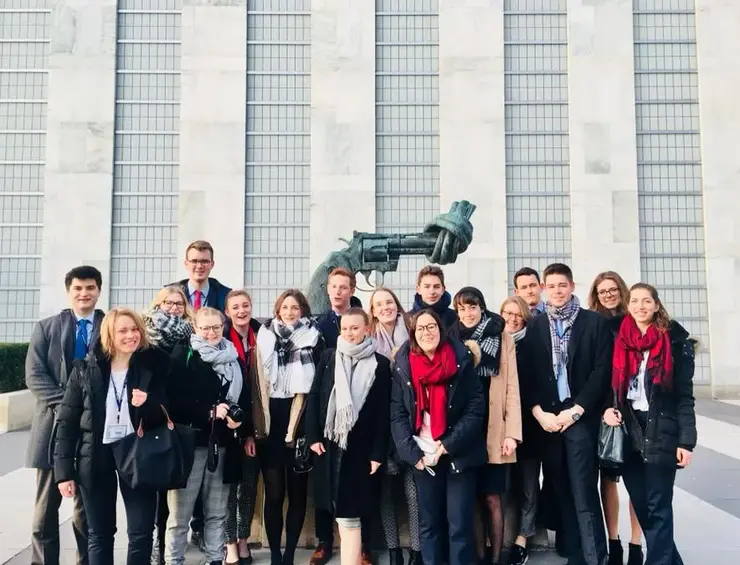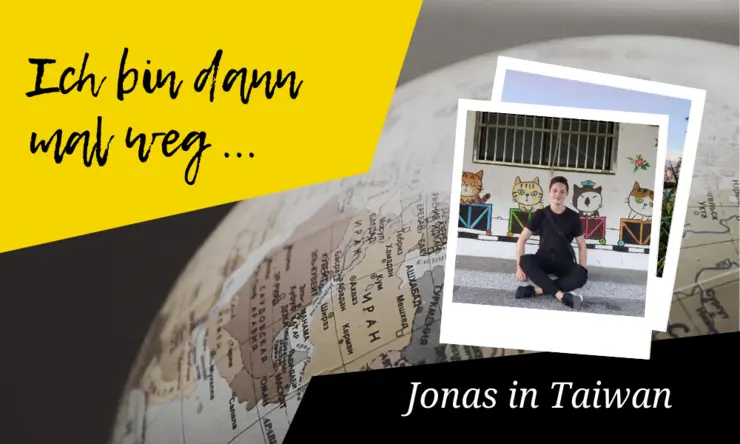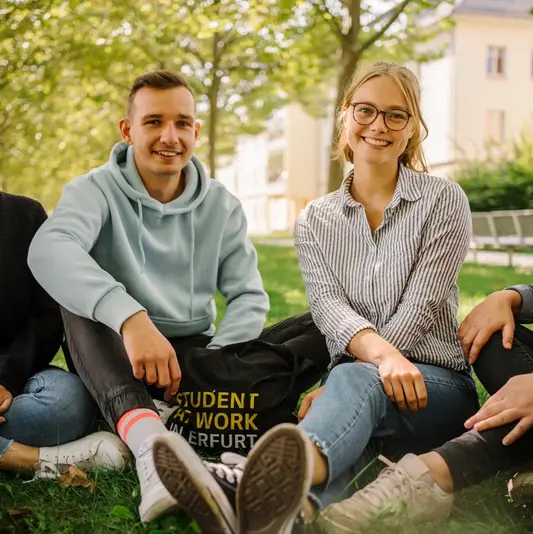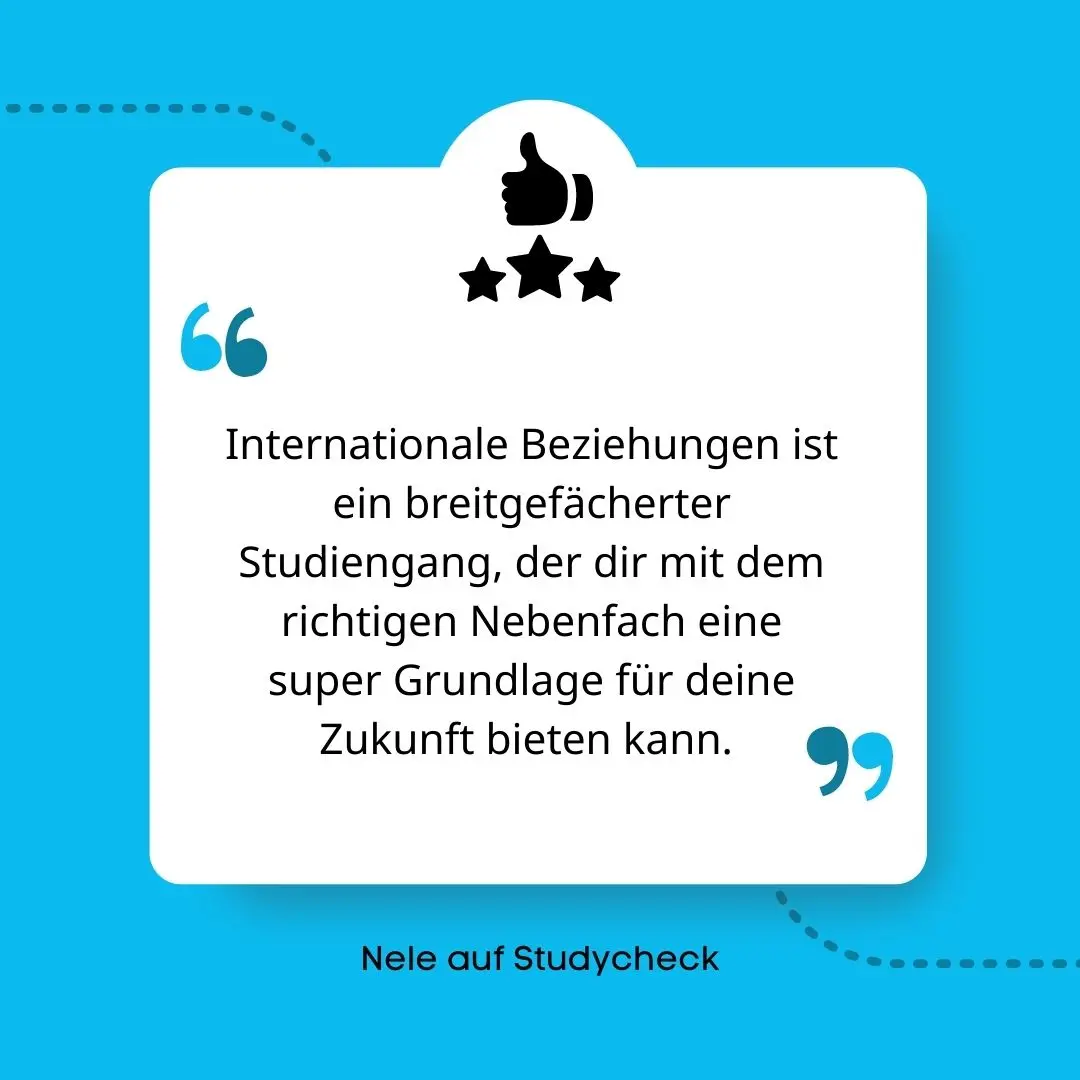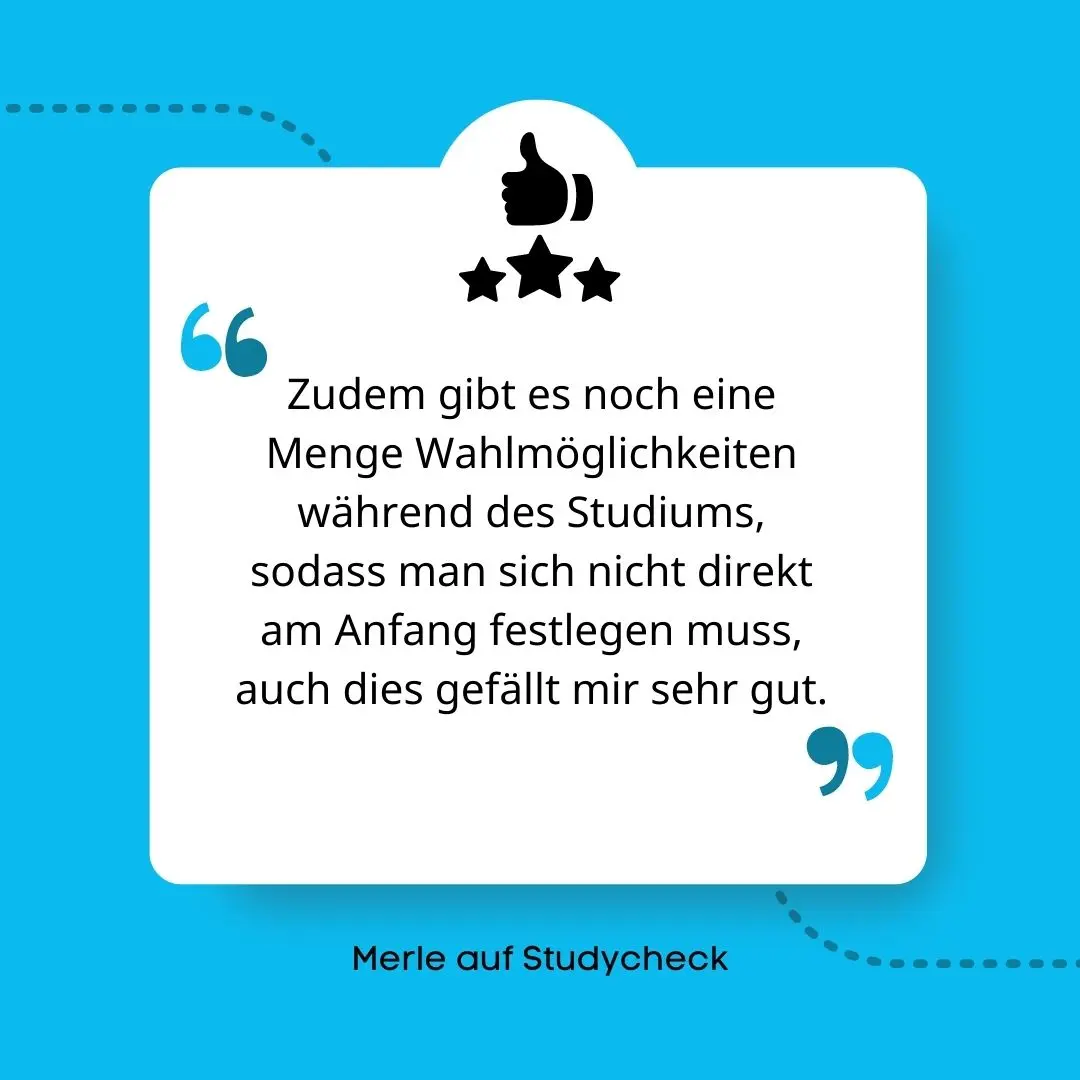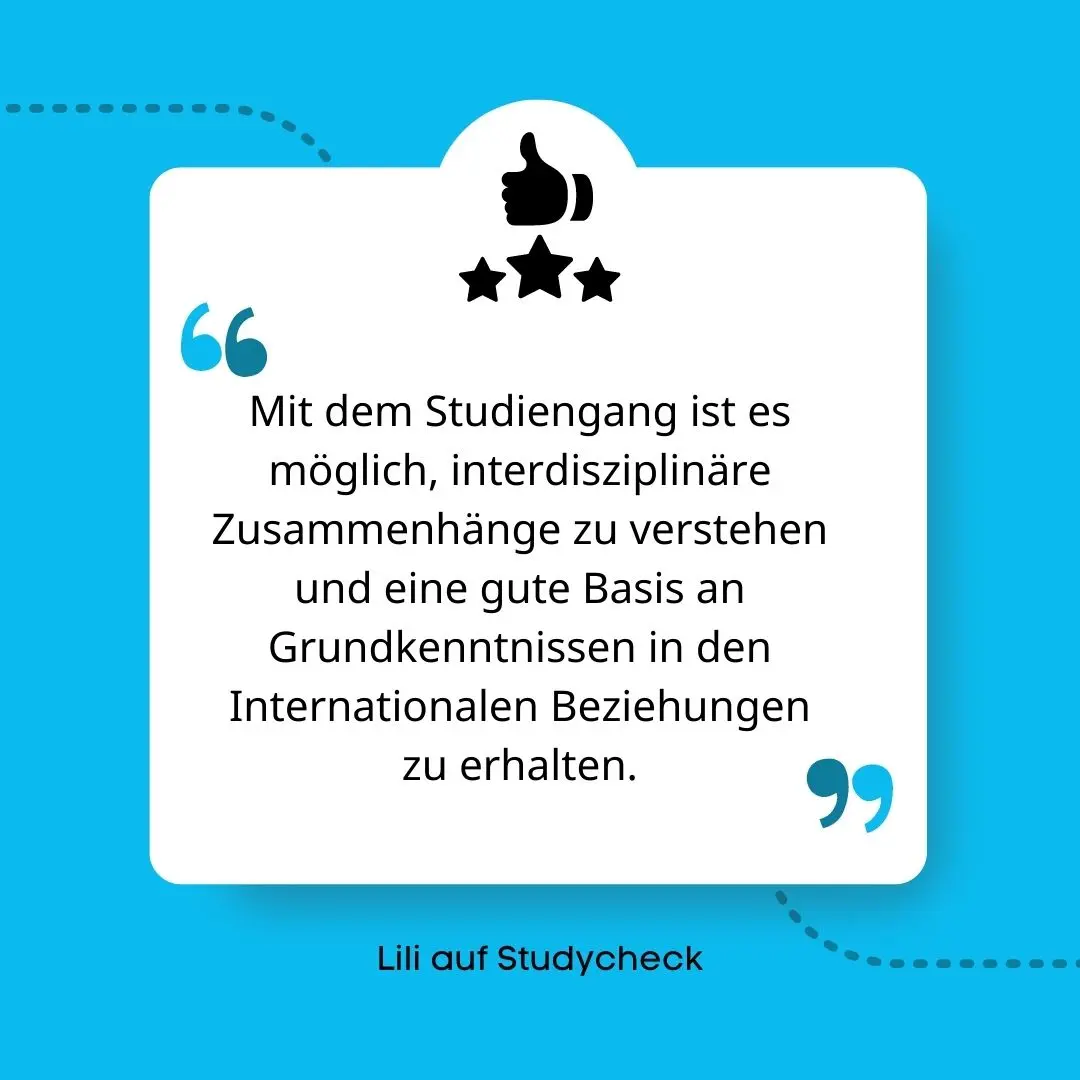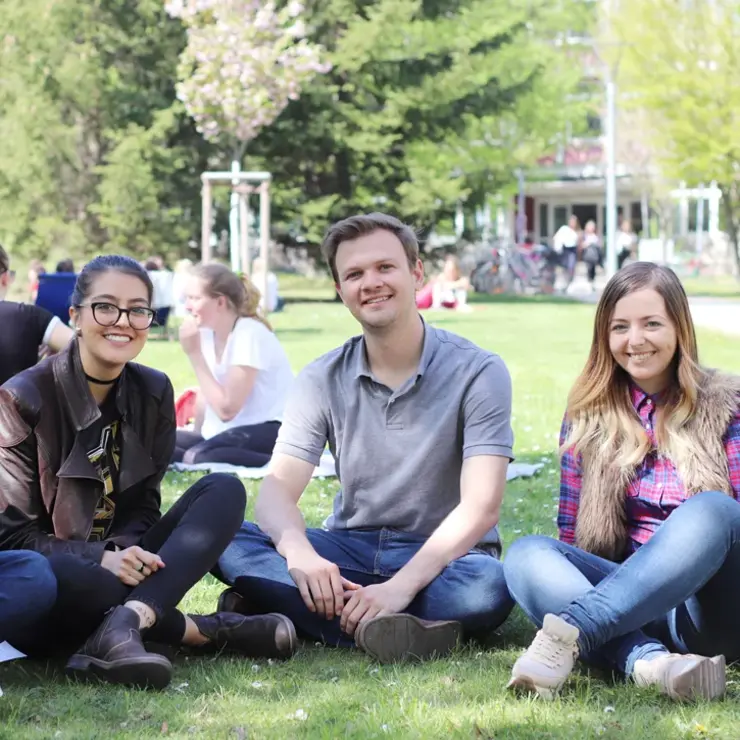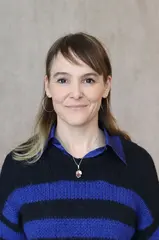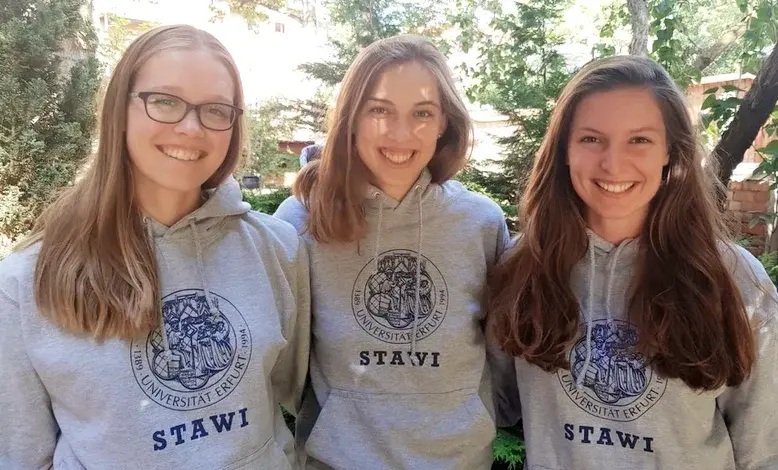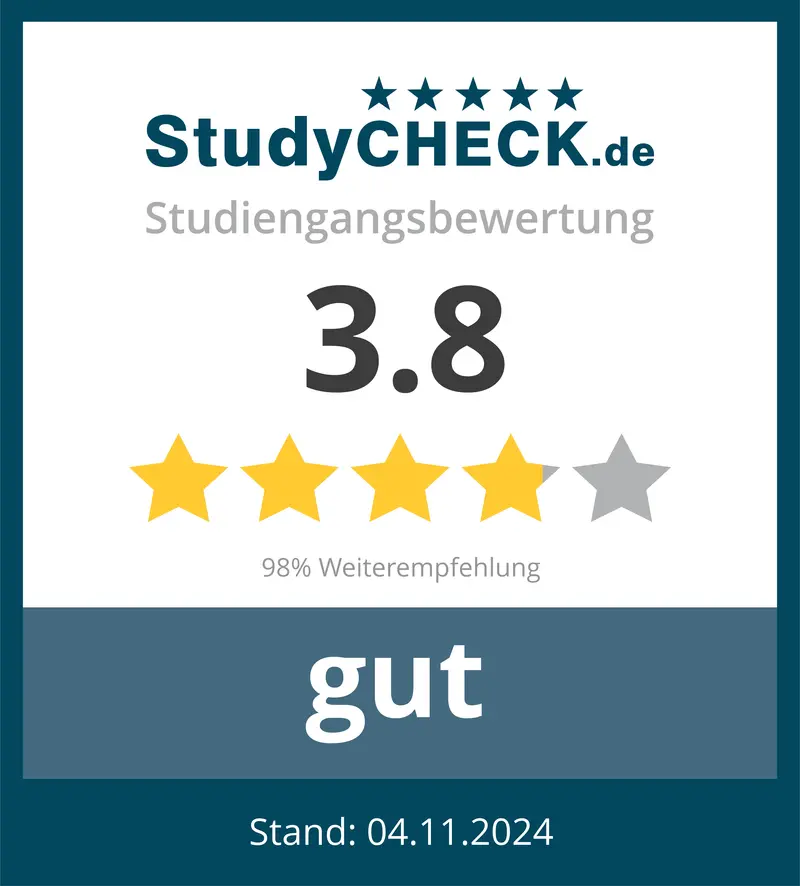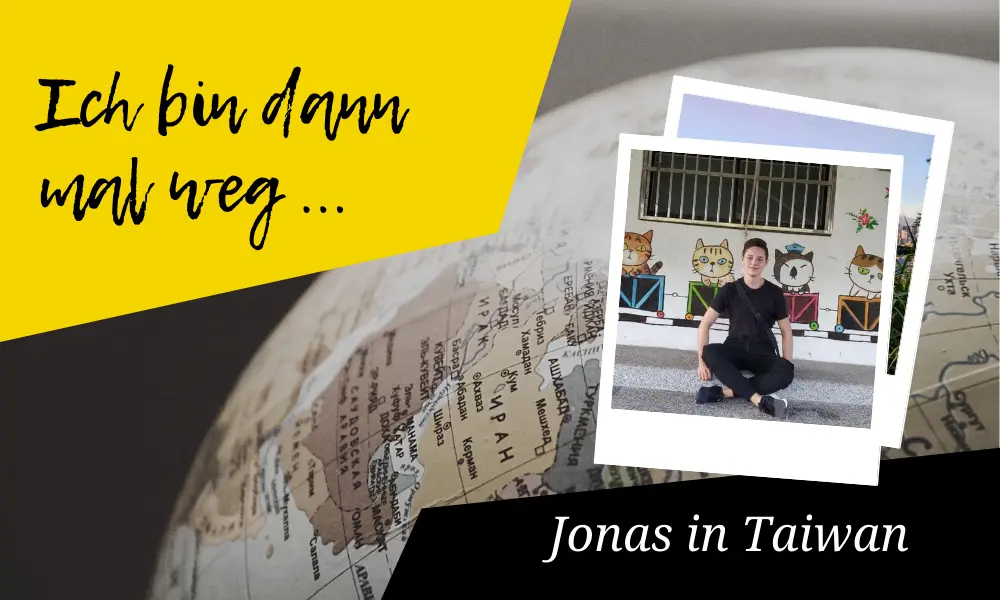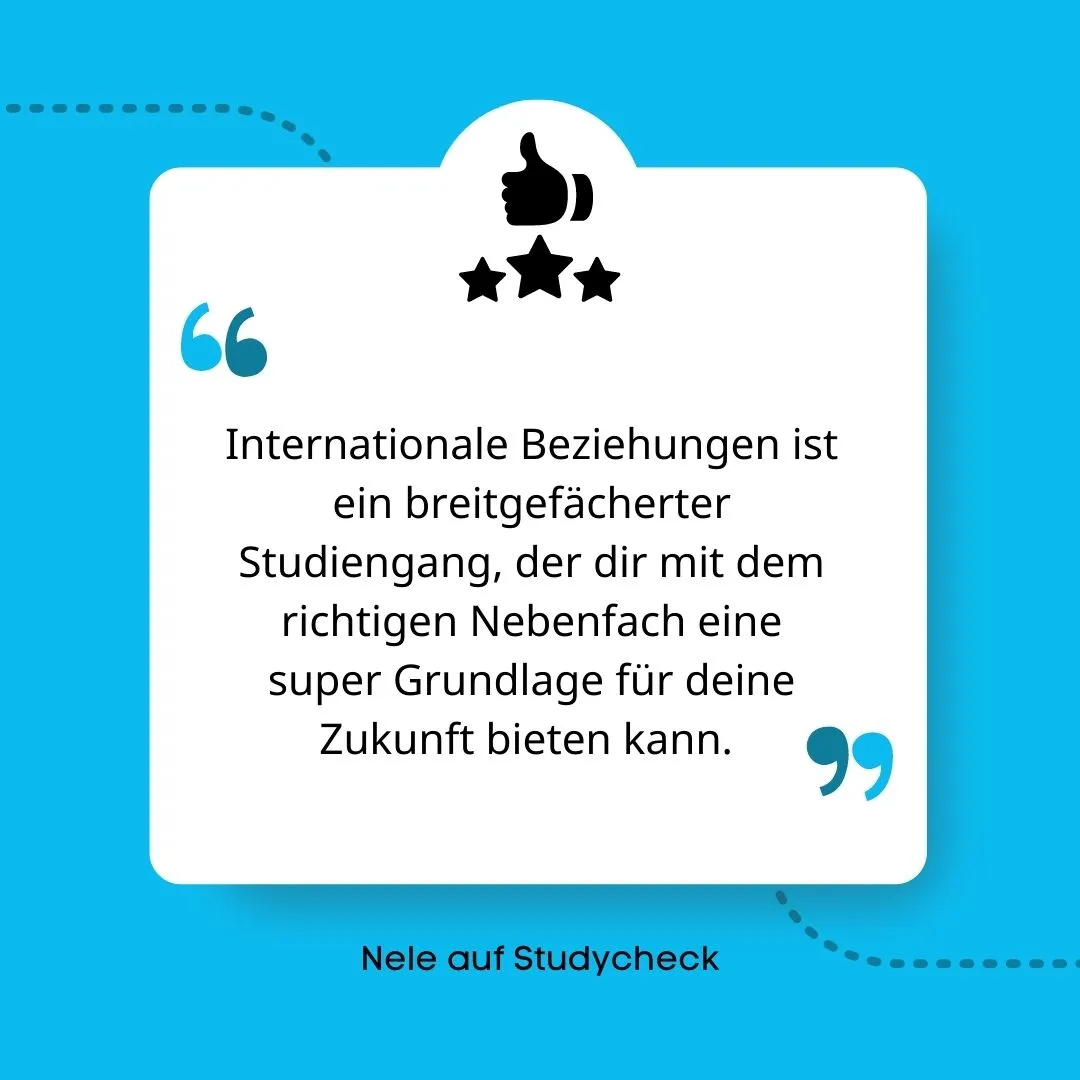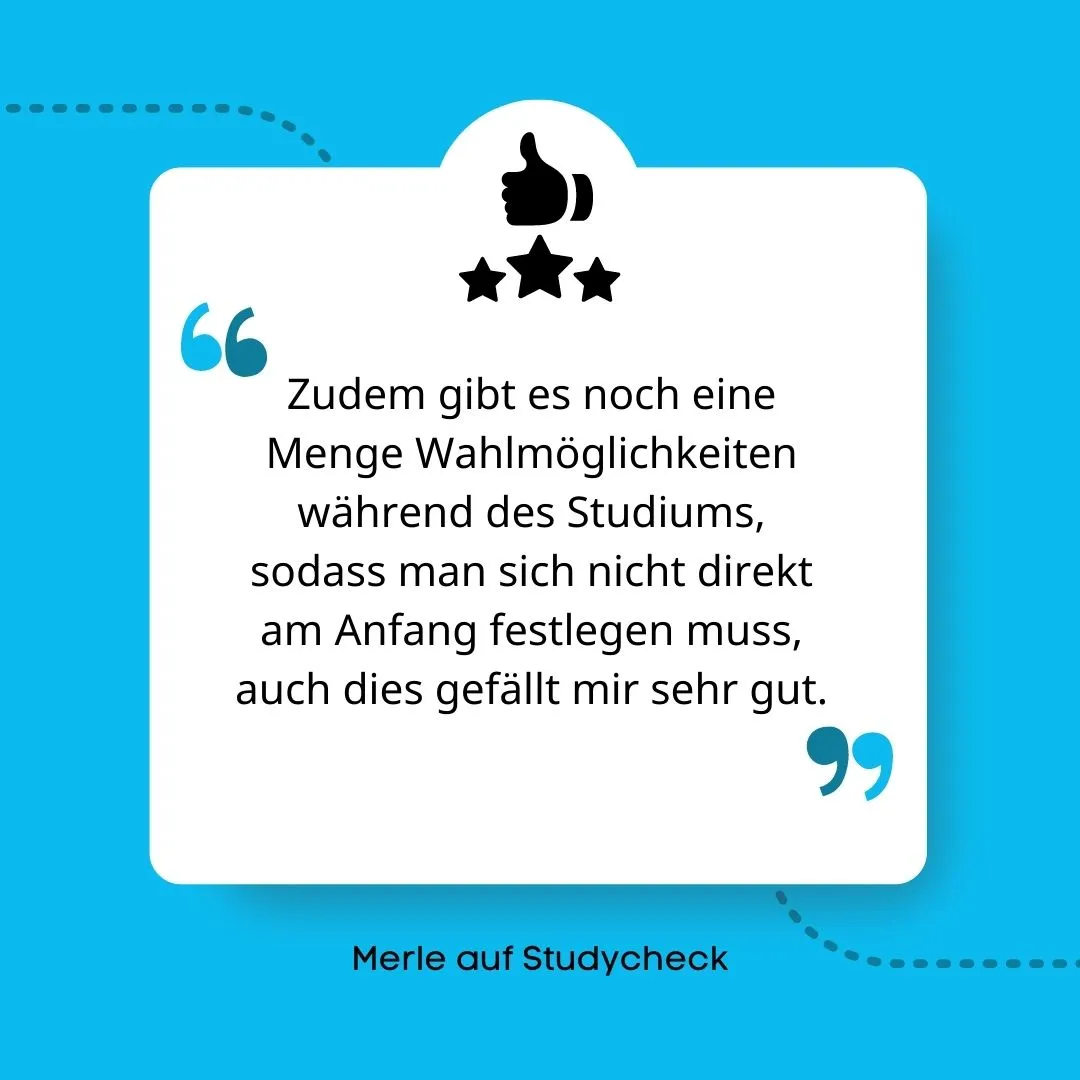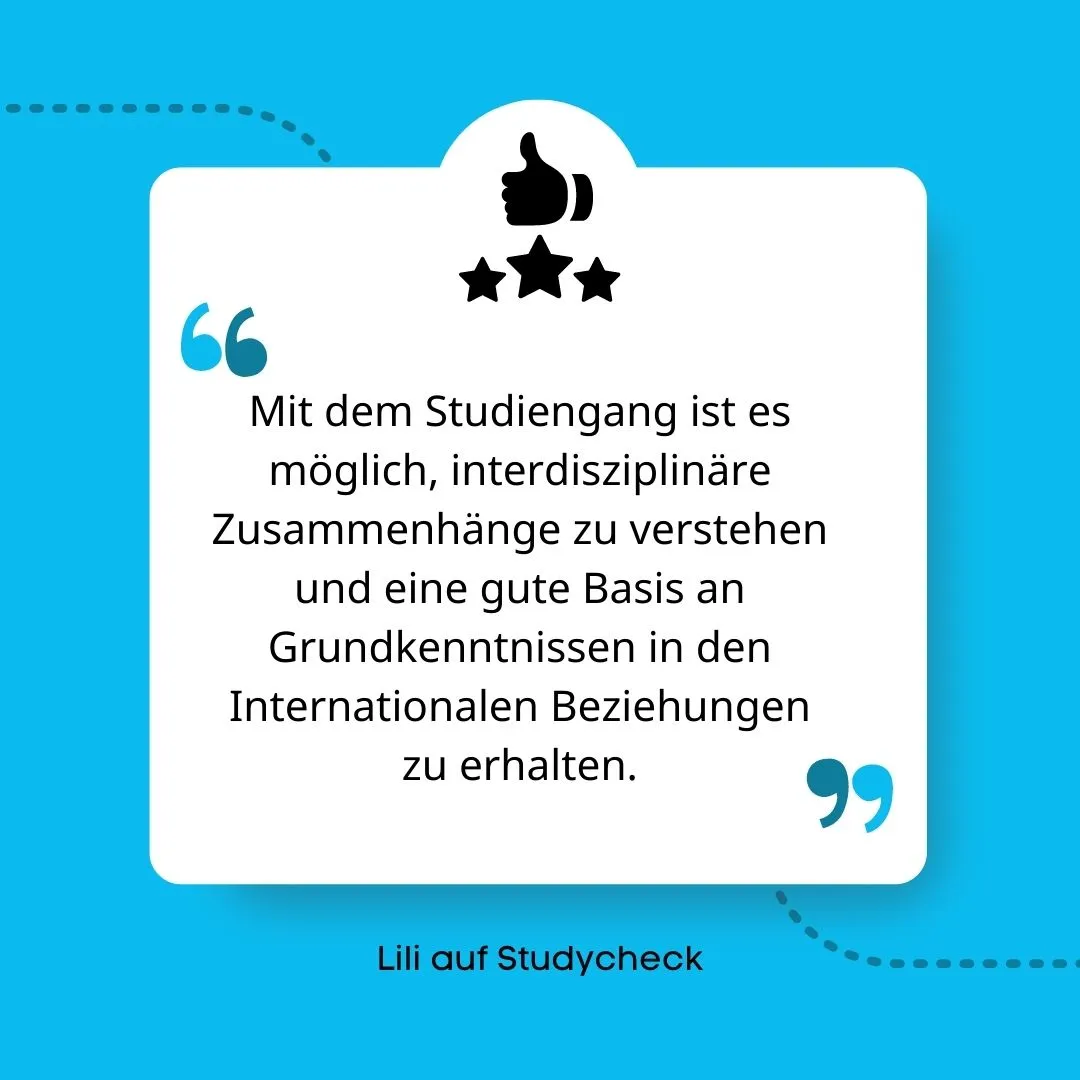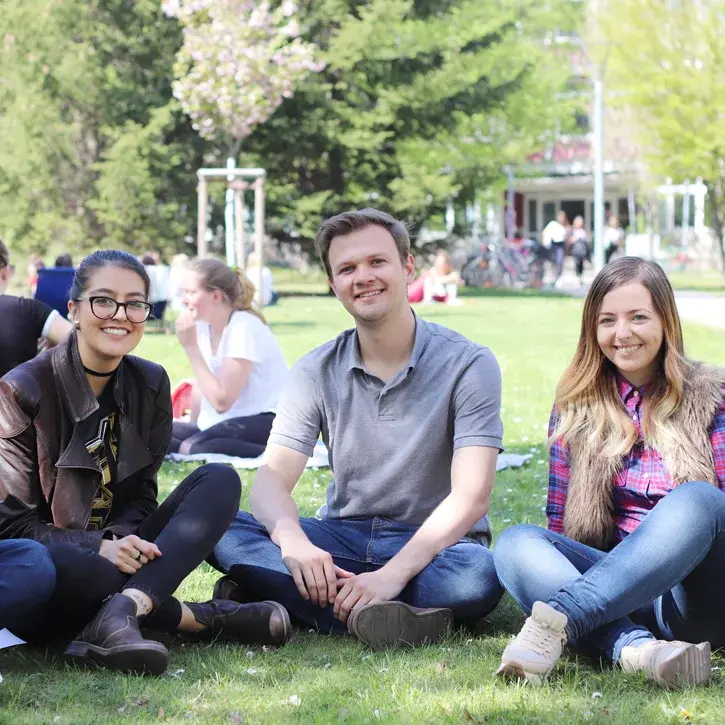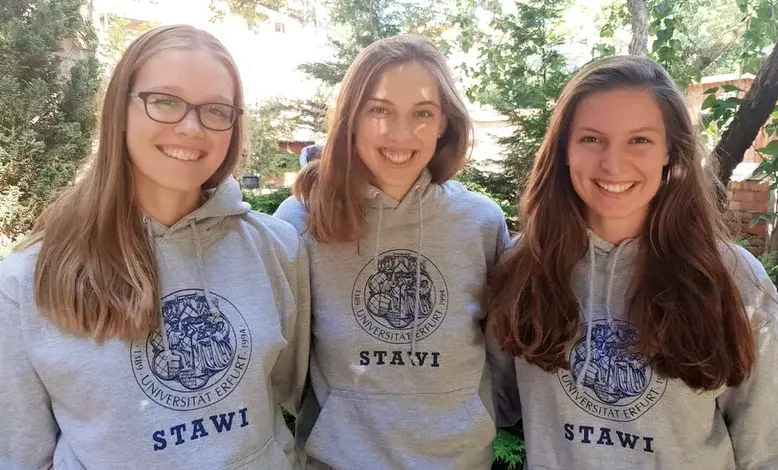International Relations
Course Details of the International Relations
The BA International Relations deals with the cross-disciplinary dimensions of a changing world order.
Subject areas are the growing interdependence of national political systems and economies, as well as the role of transnational governmental and non-governmental organisations. The degree programme is decidedly interdisciplinary, combining legal, social and economic perspectives.
As part of this interdisciplinary programme, students should acquire the basic scientific knowledge and skills in the field of international relations required for a successful career. To achieve this, students learn how to scientifically analyse major problems in international relations and how to strengthen their powers of judgement.
The degree programme teaches fundamental contexts, concepts and approaches to international relations, and teaches logical, structured and critical approaches, thus enabling students to deal independently with the global challenges of our time.
- Theories of International Relations
- International political economy
- Normative foundations of world politics
- Foreign policy and security
- Applied Statistics and Data Collection
- Microeconomics or Macroeconomics
- Fundamentals of Law
- Constitutional Law
- International Law
Niklas studies International Relations at the University of Erfurt
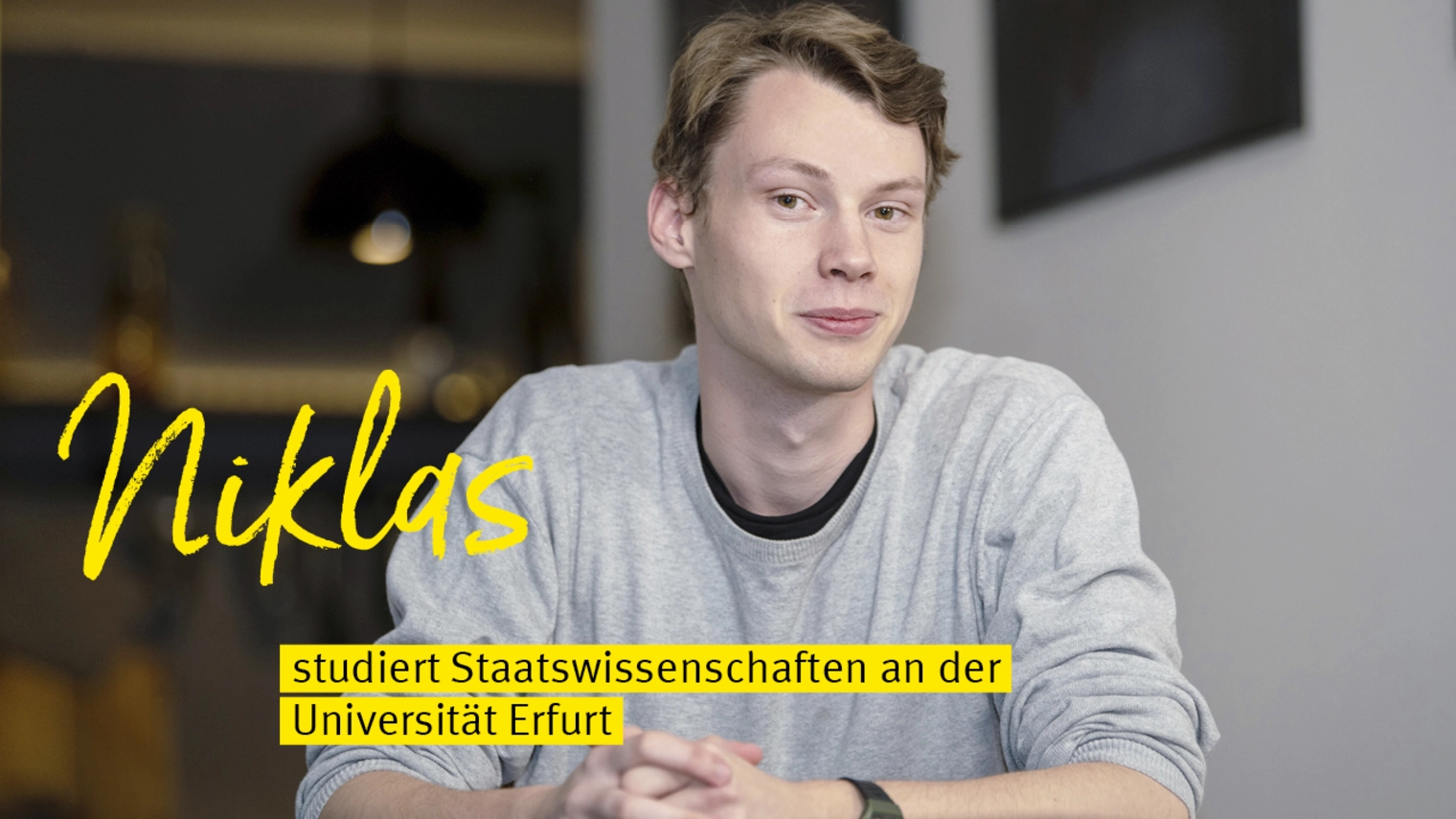
Please note: Once you watch the video, data will be transmitted to Youtube/Google. For more information, see Google Privacy.
Career opportunities
You will acquire interdisciplinary knowledge for professional activities:
- in public or private organisations in an international context,
- in international and supranational institutions,
- in the state,
- in non-governmental organisations,
- in political education and adult education,
- in peace and security policy,
- in management consultancy and in associations,
- in the media and in journalism,
- in public relations work for e.g. political parties, associations and foundations,
- in market and opinion research,
- in the church.
Our former students of the Faculty of Economics, Law and Social Sciences
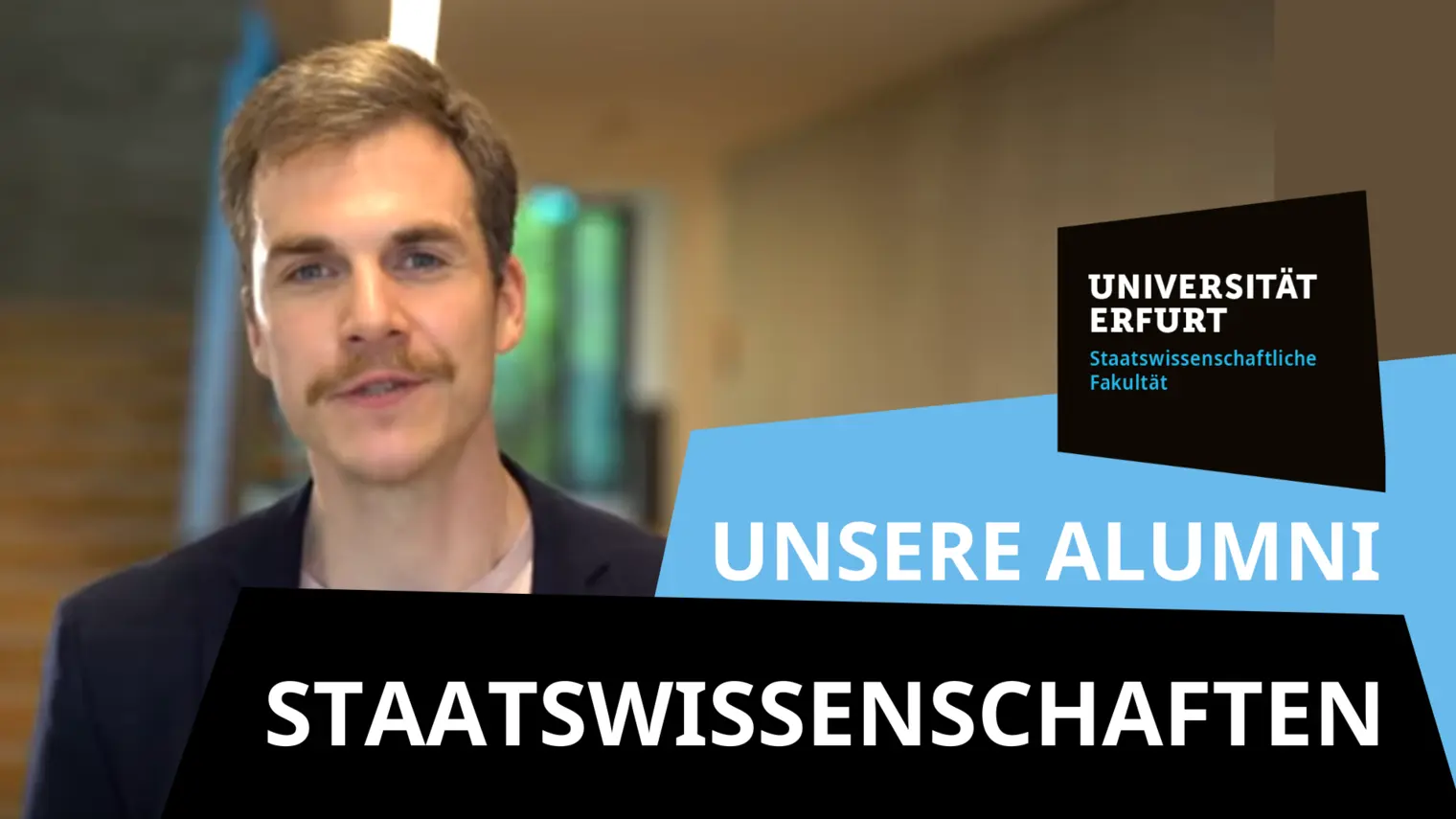
Please note: Once you watch the video, data will be transmitted to Youtube/Google. For more information, see Google Privacy.
Programme structure International Relations
Examination regulations & module catalogue
In the respective examination regulations you will find important information on the study objectives and content, language requirements, the structure of the programme as well as the teaching units and module examinations.
Examination regulations major subject International Relations 2021 (pdf)
Your semester abroad
A semester abroad in an English-speaking country is strongly recommended. The semester abroad should take place during the qualification phase, if possible in the 5th semester.
Get to know our students who have already studied abroad in our blog "I like my university".
Your path to studying abroad
As a rule, 12 to 18 months are estimated for planning and preparation before the start of studies abroad. Scholarship applications in particular have a long lead time. First discuss with your mentor which stage of your studies makes the most sense for a semester abroad. At the same time, think about the target region and the university you would like to go to.

Erasmus programme
Would you like to study abroad for one or two semesters during your degree programme? ERASMUS+ offers you the opportunity to study in another country and thus expand your social and intercultural competences in addition to your subject-related skills. The University of Erfurt offers you ERASMUS exchange programmes with around 75 universities in 25 countries.
Further university partnerships
University partnerships refer to partner universities with which the University cooperates outside of the Erasmus programme. The partner universities in this programme are mainly located outside Europe, but also in Russia, Great Britain and Switzerland.
Admission requirements
Language requirements for studies
Before beginning the study of International Relations:
- English at language level B2
By the end of the International Relations degree programme:
In the major subject International Relations, two language modules must be completed, which are aimed at the acquisition of a further language level according to the European Framework of Reference for Languages.
Language Centre
The Language Centre (Sprachenzentrum) offers around 140 language courses per semester in 16 modern and ancient (foreign) languages. It supports you in acquiring and deepening your language skills.
www.uni-erfurt.de/sprachenzentrum
Only a limited number of places are available for the International Relations programme (internal university admission restriction, numerus clausus). The number of places is determined anew for each winter semester.
Information on the application of admission restricted study programmes
Details about the International Relations degree programme
What our international relations students say
Experience reports and evaluations of the International Relations degree programme
If you want to study an interdisciplinary subject, you are in good hands with the International Relations programme. Once you have completed the O phase, there is plenty of scope to choose seminars according to your own preferences. The subject areas are very broad and many modern approaches are covered.
Rating from Jakob on Studycheck
The programme is great for gaining a broad insight into the various areas and topics of international relations and then building on this with a Master's degree. It is very interdisciplinary and there are many options to choose from, which makes the programme very customisable, depending on your future career aspirations.
Review by Sarah on Studycheck
The International Relations degree programme is always combined with a minor subject, in my case Social Sciences. This combination option and a broad introduction to related subjects such as constitutional law, contract law, economics (micro and macro) and social sciences promotes a more general understanding of the related fields in reality.
Evaluation by Thomas on Studycheck
The International Relations degree programme is very comprehensive, as you gain knowledge in various fields, e.g. law, administration, economics, politics and sociology. In my opinion, the combination with another Economics, Law and Social Sciences subject is a very good addition, even though it requires discipline.
Now that I'm doing a semester abroad , I can compare my knowledge of international relations with that of my colleagues here, and many topics that didn't mean much to me before, I now understand how important it is to study them. What I also like about the University of Erfurt is that there is the opportunity to learn a third language, which is very useful and necessary for a professional life in international relations.
Evaluation by J. on Studycheck
Come to the Open Day on 4 May and find out more about the Bachelor's programme in International Relations at 12.30 p.m. in the Centre for Communication and Information (KIZ), Lecture Hall 1.
The International Relations degree programme is admission-restricted (with NC).
Application for the two-subject Bachelor's programme:
If you are combining International Relations with an admission-free (without NC) or admission-restricted minor subject (with NC), please apply from 1 May to 15 July via the following link.
Dates in the admission procedure
Open Day
On this day, the University of Erfurt presents itself and its degree programmes on campus.
Start of the application period for the winter semester 2025/26
Music aptitude test - Registration deadline for the aptitude test on 21.05.2025
The aptitude test will take place on 21.05. and 17.06.2025.
Aptitude Test Arts - Registration Deadline
The practical aptitude test Art will take place on 13.06.2025.
Sports aptitude test - Registration deadline
The aptitude test takes place on 27.06.2025.
Application deadline for subjects with restricted admission
The application deadline for subjects with restricted admission is a cut-off deadline.
Start of the "Koordinierungsphase"
End of prioritising your applications
On this day you have the last opportunity to prioritise your applications on Hochschulstart.
Implementation of the main proceedings
As of today, you have the opportunity to receive an admission offer
Hochschulstart:
- Issuing of offers of admission as well as conversion of an offer of admission into an admission provided that the application has the highest priority.
University of Erfurt:
- Notifications of admission are made available in the University of Erfurt's applicant portal
- The 14-day enrolment deadline (cut-off period) in the main procedure begins as soon as an admission is granted
End of the "Koordinierungsphase"
Hochschulstart:
- Determining the best possible admission in each case
- Provision of the rejection notices
"Losverfahren" 1 - Start of application
If there are still places available, these will be drawn by lot. We will conduct up to two "Losverfahren".
Before the draw, applicants from the "Nachrückverfahren" will be considered first.
Implementation of the "Nachrückverfahren"
If there are still places available, applicants who have been rejected will move up first. A separate registration for the "Nachrückverfahren" is not necessary.
"Losverfahren" 1 - End of application
"Losverfahren" 1 - Draw of lots
After the draw, the notification of admission will be sent to you together with the declaration of acceptance for the study place to the e-mail address stated in the draw application.
"Losverfahren" 2 - Start of application
"Losverfahren" 2 - End of application
"Losverfahren" 2 - Draw of lots
After the draw, the notification of admission will be sent to you together with the declaration of acceptance for the study place to the e-mail address stated in the draw application.

